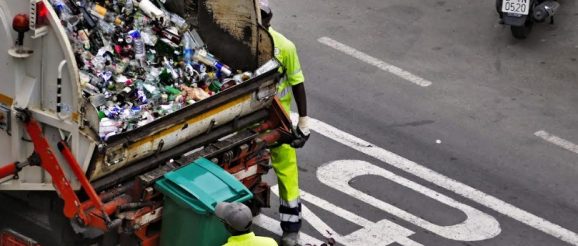New South African Tech Innovation Converts Waste To Energy

In light of the growing need for sustainable efficient energy systems across the globe, the South African National Energy Development Institute (SANEDI) has commissioned the South African Nuclear Energy Corporation to design and build a more environmentally friendly waste gasification and waste to energy system.
The result of this long term project has been a resounding success and the PlasGas and PlasWen systems are now market ready for adoption across the public and private sector.
The waste treatment product in question is a small scale, mobile container unit which uses solid waste like wood chips, metal and other combustible municipal waste like plastic, as feed material to produce syngas that can be converted into energy products such as electricity, fuel, hydrogen, heat, or steam, etc.
“If electricity is generated, this can be used as auxiliary power to sustain the plant. In addition, the system will have spare capacity of electricity, to use elsewhere, depending on the scale of operation. The larger the system, proportionally the more electricity, which can be sold as green energy,” said Dr NJ Smith, Project Manager at SANEDI who led the design concept alongside Dr IJ van der Walt at Necsa.
Dr Smith says the innovative design is aligned to South Africa’s unique climate conditions unlike other similar technologies from other regions of the world where it is tested under much different climates.
Plasma gasifiers make use of a plasma arc torch as the primary heat source. The plasma torch forms a tail-flame which is directed into the gasification reactor and ranges in temperature from 2 000 to 7 000 ˚C. This releases a high amount of energy in a small space.
Conventional thermal processes use natural gas, LPG gas, diesel, or oil burners as a heat source, albeit at lower temperatures. The higher plasma temperature results in a more complete gasification. The higher gasification temperature also minimises air pollutants to levels well below those of the other methods.
Unlike conventional gas to waste technologies, this closed, and subsequently safer system ensures that no further waste is created by producing materials that can be sold off as bi -products to other industries.
South Africa is freeing up the energy market by promoting competition through regulatory changes that now allows independent private producers to generate up to 100MW of electricity without a licence from the National Energy Regulator of South Africa (NERSA).
At the same time, President Cyril Ramaphosa has encouraged municipalities in good financial standing to take advantage of the adjusted regulations that will help them reduce their reliance on the constrained national power grid by embracing newer more efficient and sustainable ways of producing energy and re -using waste. In doing so local governments will benefit from independent energy security while reaping the benefits of new investments and job creation as cities transition from greenhouse gas intensive to cleaner, greener forms of energy.
“This is a proof of concept that can be manufactured to fit a container and scaled with the right finance and investment by the public and private sectors,” says Dr Smith.
SANEDI Interim CEO Lethabo Manamela has welcomed the finalisation of the PlasWen PlasGas proof of concept as an innovative and proudly South African design, which validates the feasibility to convert waste to energy more efficiently and within the context of the country’s climatic and other conditions.
